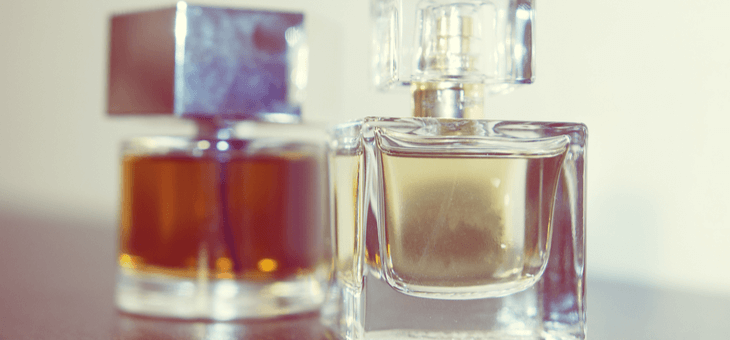Andrea Waling, La Trobe University and Alexandra James, La Trobe University
‘Vabbing’, while not a new trend, is taking social media sites like TikTok by storm.
Vabbing is the act of taking one’s vaginal secretions and using it as a perfume. People dab the secretion on various erogenous zones such as the elbow, wrist or behind the ear. The practice is believed to increase a person’s sexual attractiveness.
Vabbing became popularised by TikToker Mandy Lee. She argues, in a now-deleted video, it can help people get dates. Mandy encourages her followers to try it, recommending places such as the gym and crowded bars. Since her original video, there’s been thousands of responses, with the #vabbingtrend hashtag having over 1.5 million views.
How does vabbing work?
Vabbing is premised on the science of pheromones, a form of olfactory communication. In other words, communicating via smell.
Bodily secretions such as vaginal fluids contain pheromones that can convey a range of information about a person, including their genetic makeups. In the animal kingdom, different pheromones can do different things, such as incite a behavioural response.
While pheromones play an important role in how animals communicate with each other, research is divided as to whether pheromones play a significant role in sexual and romantic compatibility for humans. The science is inconclusive as to whether humans can sense pheromones, and if this has any impact on dating or sexual behaviour.
Despite this uncertainty, companies marketing the use of pheromones to attract potential partners is big business. There are plenty of colognes and perfumes that use pheromones promising to increase one’s sex appeal. Whether they work, however, is still in question. Journalist Tayrn Hill, for example, tried them out and anecdotally did not find that her sex appeal increased.
Pheromone perfumes and colognes are considered cosmetic under FDA regulations, meaning that, while companies can claim they use pheromones, there is no regulation as to whether the product actually contains them.
Vabbing has been touted by TikTokers as a more effective form of using pheromones to attract partners than purchasing perfumes. This is, as Mandy Lee claims, based on using one’s own pheromone makeup, rather than an artificially created one.
While scientists argue vabbing does not work and others question if it is a hoax, vabbing practitioners insist on its effectiveness. Several people have tried and documented their vabbing experiences. They claim it has helped them have hotter sex and flirty interactions with others.
Vabbing as a feminist act?
Vabbing has been criticised as an act of desperation. Vabbing is also seen as another tool of patriarchal oppression in which women are taught to value their self-worth by their ability to sexually attract men. It has also been regarded as unhygienic and disgusting, and has become fodder for many comedians.
However, there is a long history of disdain for the vagina’s smell. Vagina’s are viewed as unhygienic, dirty or contaminating. This has been regarded as something shameful and to be disguised, making it a breeding ground for capitalist markets to create insecurities and develop products as a response, such as the development of vaginal cleansing products, marketed to help women “feel fresh” and “confident”, and to mask natural vaginal odours.
More recently, there has been a rise in products that promise to not only cleanse the vagina but lighten the vulva. The lightened colour of the skin is not only linked with hygiene, but also racism and privileging whiteness.
Concerns and shame associated with the smell and appearance of genitalia can also result in other practices like Brazilian waxing and anal and vulva bleaching.
The consequences of stigma associated with vaginal smell range from a negative impact on peoples’ comfort with sexual experiences to concerns about sexual health. This can include discomfort in receiving oral sex to encouraging hygiene practices that present the potential for increased health risks.
The trend of vabbing, and those taking it up, could herald a new direction where the vulva and vagina are embraced. These build on public attempts to celebrate the vulva and vagina, such as Gwyneth Paltrow’s vagina-scented candle, artistic exhibits that showcase a diversity of genital appearance, or even Aimee Gibbs’s (Aimee Lou Wood, from the television series Sex Education,) labia-themed cupcakes.
Some argue vabbing may be less about attracting others, and more of a form of bodily awareness. Writer Tracey Duncan found that when they vabbed for a week they felt more sexually confident in themselves and began to embrace their natural musk:
This week, I thought more consistently about how much I’ve bought into the misogynist sanitisation of pussy than I ever have before, and I purposefully opted out.
While some may mock the trend of vabbing, take it as ironic, or argue it does not work, it nevertheless indicates the vulva and vagina and their functions are now out and proud.
Andrea Waling, ARC DECRA Senior Research Fellow in Sex & Sexuality, La Trobe University and Alexandra James, , La Trobe University
This article is republished from The Conversation under a Creative Commons license. Read the original article.

